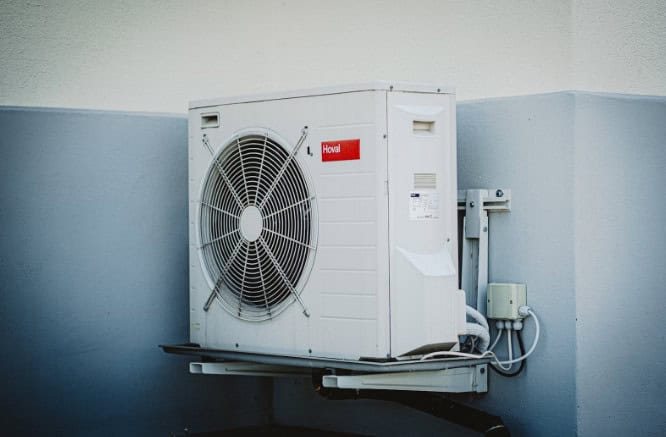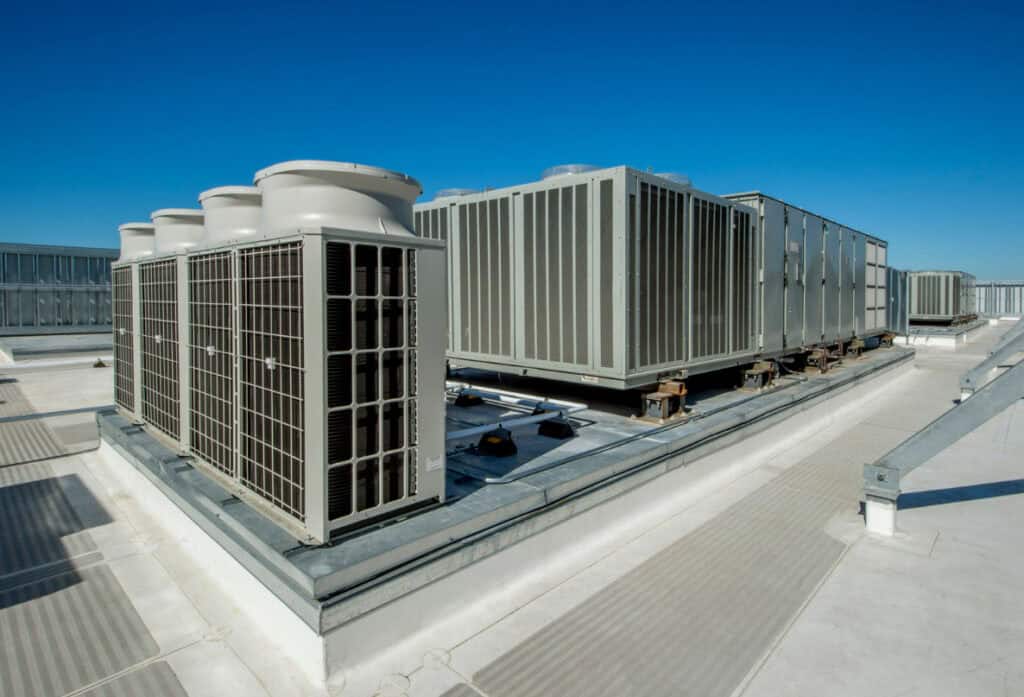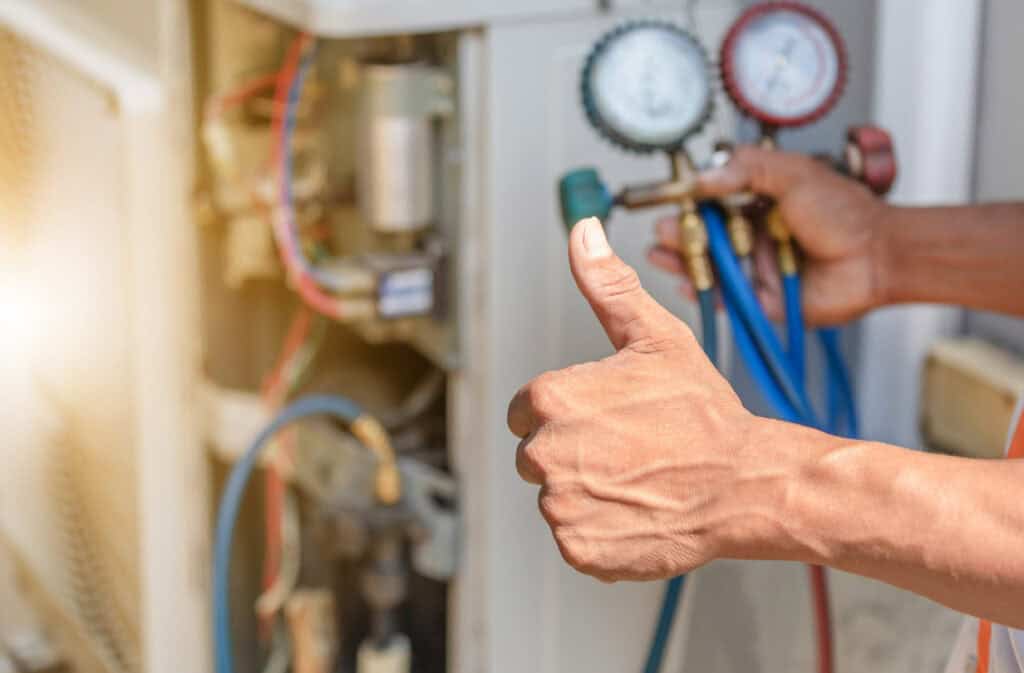Behind the scenes of nearly every building is an intricate network of heating, ventilation, and air conditioning (HVAC) equipment working to create comfortable indoor environments. HVAC systems control temperature, humidity, airflow, and air quality within homes, offices, schools, and hospitals.
Table of Contents
Trained HVAC technicians install, maintain, and repair common HVAC issues that are often taken for granted. As HVAC technology advances and green building awareness grows, demand for qualified technicians continues to rise steadily. Newcomers may find the industry intriguing but full of unfamiliar vocabulary and concepts.
In this post, let’s discuss some basic aspects about HVAC systems and careers and why you should consider it as a serious career path.

HVAC 101: The Basics
In short, HVAC systems work to:
- Control Temperature: Heating and cooling components regulate interior warmth or chill to maintain set thermostat reading.
- Regulate Humidity: Dehumidifiers remove excess moisture to thwart mold and mildew while humidifiers prevent dryness.
- Purify Air Quality: Advanced filtration traps pollutants, allergens, and microbes circulating via air ducts.
- Circulate Airflow: Proper ventilation replaces stale interior air with fresh air, preventing “sick building syndrome.”

Popular System Types
From compact residential units to highly complex commercial buildings, properly sized and designed HVAC systems promote comfort, health, and productivity.
- Split Systems: The most common. Air handlers or furnace units connect via ductwork to external condenser units. Allows zoned temperature control.
- Packaged Systems: All components (compressor, evaporator coil, condenser, and fan) are mounted in one cabinet for easy rooftop installation. Used widely on commercial buildings.
- Ductless Mini-Splits: Wall-mounted indoor evaporator-fan units linked by refrigerant lines to compact outdoor condensers, no ductwork required. Used in additions, garages or to zone smaller areas.
- Heat Pumps: Absorb and move heat between indoors and outdoors via a refrigeration cycle, providing both heating and air conditioning from one unit. Work efficiently in milder climates.
- Geothermal Heat Pumps: Transfer heat between buildings and underground via a ground loop piping system. Save significantly on operating costs but higher initial investment.
HVAC Systems and Careers: Getting Trained for HVAC Success
HVAC technicians require specialized technical training covering concepts like:
- Basic Refrigeration: Understand phase-changing refrigerants and heat transfer for climate control.
- Electrical Systems: Safely install and debug electrical control systems, motors, sensors, and wiring.
- HVAC Equipment: Correctly size, select, install, and maintain various furnaces, heat pumps, and ductless units.
- Safety Rules: Follow critical procedures for handling refrigerants, power tools, chemicals, lifting, ladders, and protective gear.
- Codes and Regulations: Adhere to complex governmental policies dictating HVAC system handling, construction, zoning, and emissions.
- Troubleshooting Skills: Hone logical thinking to isolate and diagnose faults through testing and deduction.
Earning Credibility Through Certification
Industry credentials prove competence. Common options include:
- EPA 608: Required for purchasing or working with refrigerants. Demonstrates understanding of environmental rules.
- NATE: Rigorous testing across various residential and commercial specialties, like gas heating or senior-level air conditioning. Highly respected by employers.
- HVAC Excellence: Basic essential skills exams help launch HVAC careers or prepare for more advanced certifications down the road.
Why Invest in HVAC Education?
Besides the obvious need for specialized knowledge, key perks of HVAC training and credentials include:
- Increased Earning Potential: Skilled techs can expect $20-$30 average starting hourly wages, rising with certifications and experience.
- Enhanced Job Security: HVAC mainstay positions resist outsourcing and recession fluctuations as indoor climate control remains non-negotiable.
- Career Advancement: Initial on-the-tools experience creates paths to move up towards higher pay and cleaner technician supervisor, training director, or business ownership roles over time.
- Improved Diagnostics: Correctly identifying obscure problems impresses customers and saves costly equipment repairs through preventative care.
- Credibility and Confidence: Certifications verify competence to assure customers their comfort and safety are in reliable hands.
Choosing the Right Training Program
Selecting a quality HVAC education program accelerates success. Seek out:
- Accreditation: Respected industry organizations endorse quality curriculums meeting strict standards.
- Robust Curriculum: Look for well-rounded content from hands-on lab practice to customer service basics across varied HVAC systems.
- Experienced Instructors: Those with years of real-life HVAC experience offer valuable troubleshooting perspectives beyond textbooks.
- Job Placement Assistance: Programs actively network with local union groups and employers groom grads for hiring.
- Affordable Tuition: Legitimate programs offer reasonable pricing structures and financing options if needed.
Exploring HVAC Career Paths
HVAC roles span wide-ranging skill sets and interests at various experience levels:
- Installation Technicians: Physically demanding work beginning careers by correctly configuring HVAC components based on architectural plans under supervisor guidance.
- Service Technicians: Mixture of customer service and technical expertise, inspecting and repairing HVAC systems in homes and businesses. Troubleshoot issues via testing methods.
- Sales Representatives: Utilize people skills and HVAC equipment knowledge to connect customers with appropriately sized climate-control solutions that best meet their budget. May estimate costs.
- HVAC Engineers: Design complex HVAC systems for large commercial structures leveraging physics, airflow, thermodynamics, and building information modeling software. Advanced theoretical scientific background required.
- Project Managers: Coordinate teams and processes from system design through installation completion stages on major building projects. Ensure on-time, on-budget execution.
Getting Started in the HVAC Industry
If you’re ready to embark on an HVAC career, here are some steps you can take:
Research HVAC Training Programs
Seek out accredited programs offering robust curriculums with plenty of hands-on lab practice. Explore community college certificates, trade school diplomas, union apprenticeships, and private training organizations. Compare program lengths, costs, instructor qualifications, job placement rates, and areas of specialty.
Enroll in an HVAC Training Program
Once accepted into a program, dive in fully to absorb all aspects of working on heating, air conditioning, ventilation, refrigeration, and building automation systems. Develop expertise in safety protocols, electrical wiring, metal fabrication, equipment installation and maintenance, troubleshooting strategies, and customer service fundamentals.
Gain Hands-On Experience
Look for apprenticeship, externship, or internship opportunities allowing you to gain real-world experience in HVAC company settings under mentor guidance. Building confidence through practice alongside seasoned technicians proves invaluable before working independently.
Obtain Certifications
Relevant HVAC credentials verify your skills to prospective employers and customers. Consider obtaining EPA Section 608 to handle refrigerants, NATE certification across specialty areas, and local licenses as required. Some credentials may require verifiable field experience before qualifying for the test.
Network with Industry Professionals
Attending local HVAC conventions, speaking with instructors, and joining relevant trade organizations get your name circulating while learning about job opportunities. Many positions result from insider referrals and built connections rather than cold applications.
Start Your Job Search
With cutting-edge technical training, certifications, and field experience secured, work with career centers to create polished resumes tailored to HVAC.
Practice interview skills as you apply to assistant and apprentice-level jobs at HVAC companies, facilities management teams, hotels/hospitals with internal maintenance staff, and more. The right entry-level position paves the way for advancing through the exciting HVAC field.

The Future of HVAC Technology, HVAC Systems and Careers
Innovations constantly enhance efficiency, intelligence, and capabilities:
- Smart Technology: Sophisticated WiFi-connected systems self-monitor operations and can integrate with home automation features like voice controls.
- Energy Efficiency: Components leverage improved insulation, zone control, and heat recovery ventilation to curb energy waste.
- Indoor Air Quality Monitoring: Advanced detection of contaminants automatically triggers filtration adjustments for cleaner indoor respiration.
- Green Refrigerants: Updated EPA regulations phasing out ozone-harming hydrochlorofluorocarbons (HCFCs) guide the transition towards safer, environmentally-friendly alternatives.
- Building Automation Systems: Centralized, app-based monitoring networks analyze equipment performance across large complexes for predictive maintenance.
- 3D Printing: Prototyping simplified pump impellors, ductwork, and other custom HVAC parts on-demand from digital designs saves costs and installation time.
Final Words About HVAC Systems and Careers
Behind seamless year-round indoor comfort lies complex heating, ventilation, and air conditioning equipment requiring proper installation, maintenance, and repair from skilled technicians.
HVAC careers prove rewarding for those mastering technical mechanical concepts combined with customer service finesse. Investing in recognized HVAC education builds real-world competencies high in demand.
Mastering HVAC systems grants stability in supporting the indispensable built environments where people congregate to live, work, heal, learn, and play in any climate.



